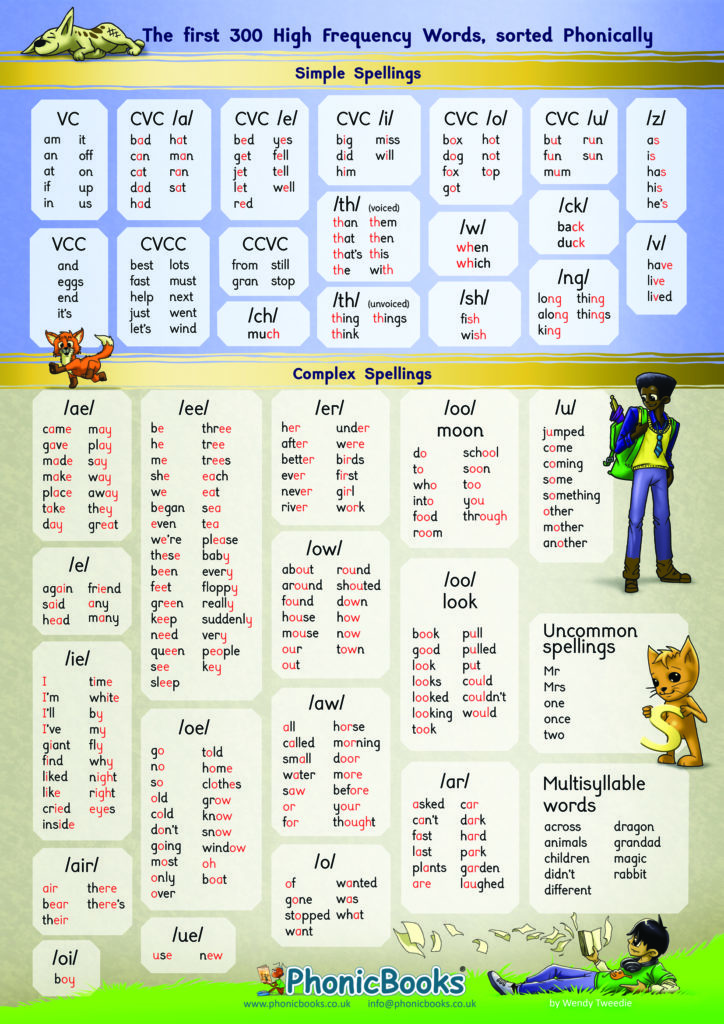Do your children forget spellings from one week to the next?
Many teachers issue spelling lists each week only to find that a week or two down the road the children have already forgotten them.
At Phonic Books we believe that teaching children the first 300 high-frequency words in a way that links up with phonics is a sure-fire way for children to build both their reading and spelling skills in tandem. Children need to get into the habit of segmenting new words and understanding how each part works as early as possible.
With this in mind, we’ve produced a phonic high-frequency word chart which allows teachers to take a group of words with common spellings and use them for a spelling list, dictation or other spelling activities.
We find that students who have been taught phonically will automatically implement their knowledge to help with reading and spelling when they come across a word they don’t know.
*Give away!
We’re giving away 50 of these useful charts via our Facebook page. Head over now and like both our page and the pinned post to be in with a chance of getting one! If you can’t wait to get your hands on it, it is also available as a pdf here.
*Offer closes 23rd March 2018



Thanks for your help
Thank you for sharing such valuable information! It’s the very basics that help children learn to read.
Looks interesting. How do I get the high-frequency word list? Has any research been conducted to confirm that this method is effective? Can you please share the research?
Hi there,
The method that most teachers use for teaching high-frequency words is the ‘whole word’ method – which means kids need to remember the word by shape. Because many teachers believe that some words are not decodable (which is not the case), even if they are teaching phonics they will teach the whole word method for high-frequency words. This is evident in the ‘Look, Say, Cover, Write, Check’ which you see used everywhere. This contradicts the alphabetic principle which shows that all words can be segmented into graphemes (spellings that represent sounds in words) because that is the fundamental principle of an alphabet. Only some spellings are rare or complex. To learn more about these approaches I recommend Dyslexic.org.uk site http://www.dyslexics.org.uk/main_method.htm
I hope this is helpful.
Is this following the dolch word list or fry’s?
This list is combination of both lists. Kind regards, The Phonic Books team.